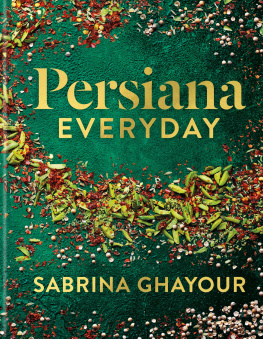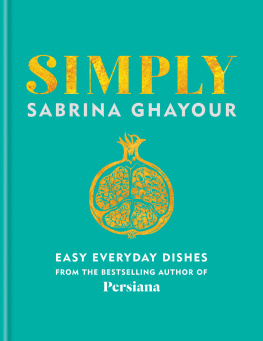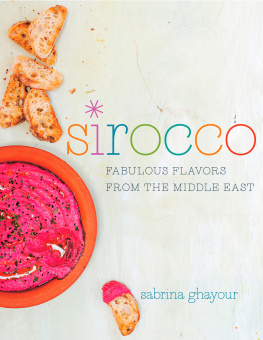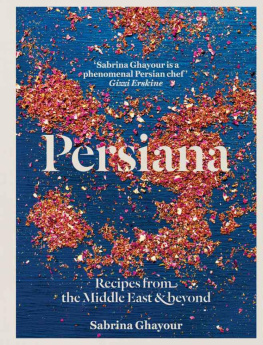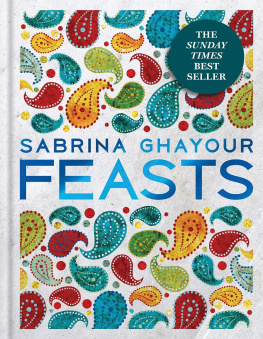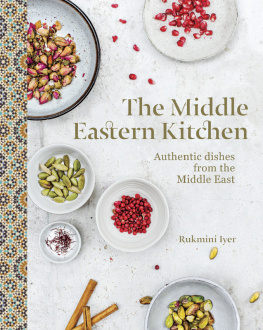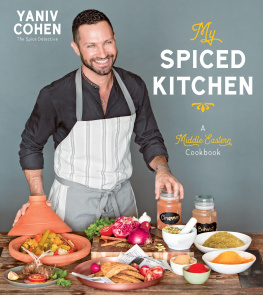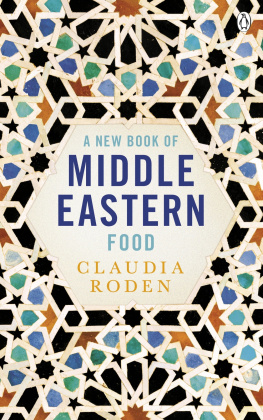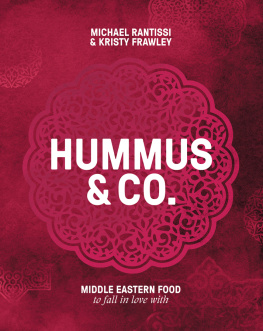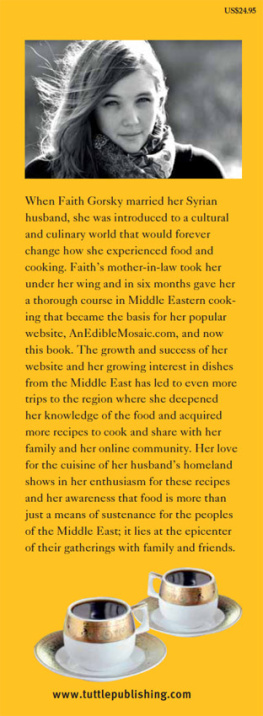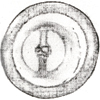

For my Mother loving, supportive and always ready to try whatever concoction I place in front of her. Love you Mama even if you still cant cook.



Contents
Introduction
Middle Eastern cookery is often shrouded in mystery its the stuff of Arabian nights and full of Eastern promise. It is perceived as exotic and unknown. But this is not a true reflection of the simple and honest cuisine that it is. Perhaps the misconception is due to something being lost in translation if a dish has a Persian, Turkish or Arabic name, you might think Well, that must be really hard to make when, in essence, there is little complexity involved in many of the recipes.
I began cooking at the tender age of six and, while I would love to say that I learnt everything I know from my Mother or Grandmother, I can tell you that I am, in fact, a self-taught cook. Nobody in my household really knew how to cook, so home cooking consisted of a handful of dishes often thrown together out of convenience or necessity rather than joy or love of feeding people. Experimenting in the kitchen was commonplace for me and, by my late teens, I decided it was time to teach myself how to cook Persian food, which is exactly what I did. At first, my focus was strictly Persian, but growing up in a family that enjoyed influences from the Turkish, Arab, Armenian and Afghani cultures and cuisines meant that my repertoire naturally grew over time.
Fast forward to the present and I have found every shortcut possible to simplify many Persian and Middle Eastern recipes, to create a style of cooking that fits comfortably into my everyday life. Although some recipes in this book are authentic, some draw inspiration from the Middle East and combine the wonderful flavours and ingredients of the region with everyday produce thats available in supermarkets everywhere. You dont need to have a million ingredients to create something delicious and special sometimes you just need a handful of spices, and a few helpful hints on what to do with them and how versatile they can be. This alone can transform how you cook at home.
I host supper clubs at various venues in London and it never fails to surprise me just how successfully a table of food can bring people together. Guests arrive as complete strangers and leave the table as friends and this is exactly what food is for us. It provides a convivial experience, during which all else is put aside and food and enjoyment become the focus. In the Middle East, food is not just about sustenance. There is a sense of occasion, a sense of unity that goes with it. You create a feast for your guests to show them you value them, to make them feel special. You form bonds and build lasting relationships over food, much the way that so many other cultures like to celebrate with wine and drinks.
I can understand that the way we eat in the Middle East can be overwhelming for some cultures. We do like to fill the table with a myriad of dishes both hot and cold, with an abundance of colour, variety and both meat and vegetables. Of course, not every day has to be a feast. Some days I just want a simple one-pot recipe that will feed the family quickly and easily, and on other days, I feel like preparing a feast. Whichever way you like to eat, in this book there is something to suit your every mood and plenty of variety to suit every palate.
Growing up in an Iranian family, Persian food will always be my first love, but I was raised in England and, having lived here for over 30 years, I consider myself to be British. My style of cooking is very much based on ingredients that can easily be found in supermarkets, along with a few ingredients here and there that may require a bit more of a search (unless you have a Middle Eastern grocer nearby) or easily ordered online. Its important you dont feel as if every recipe must be replicated with 100 per cent accuracy in all honesty, the best recipes are those that are born through an accidental occurrence, such as substituting an ingredient for one that was required. This is the way in which to build confidence and demystify Middle Eastern cookery. If you like cumin, add cumin! If you dont like it, then leave it out. You wont ruin a recipe by replacing or omitting an ingredient here and there.
Flavourful food neednt be a chore, and if you know what to do with a few simple store-cupboard ingredients, you can do wonders in the kitchen. If you were to cook a recipe that was too ingredient- or labour-intensive, what would be the chances of you making that recipe again? Slim be honest. I have found that if you keep a few spices in your cupboard, some preserved lemons and maybe some harissa, magical, wonderful things can happen Even on those nights when you are stuck in traffic, come home an hour later than planned but STILL want to eat something delicious for dinner, you can put something special on the table without breaking a sweat.
No mess, no fuss, just simple and delicious food thats what I like to eat, thats what I like to cook for my family and friends and thats just what I want to share with you. I hope this book shows you that the food, flavours and ingredients of the Middle East are accessible and uncomplicated, and therefore far more achievable than you might have previously believed.

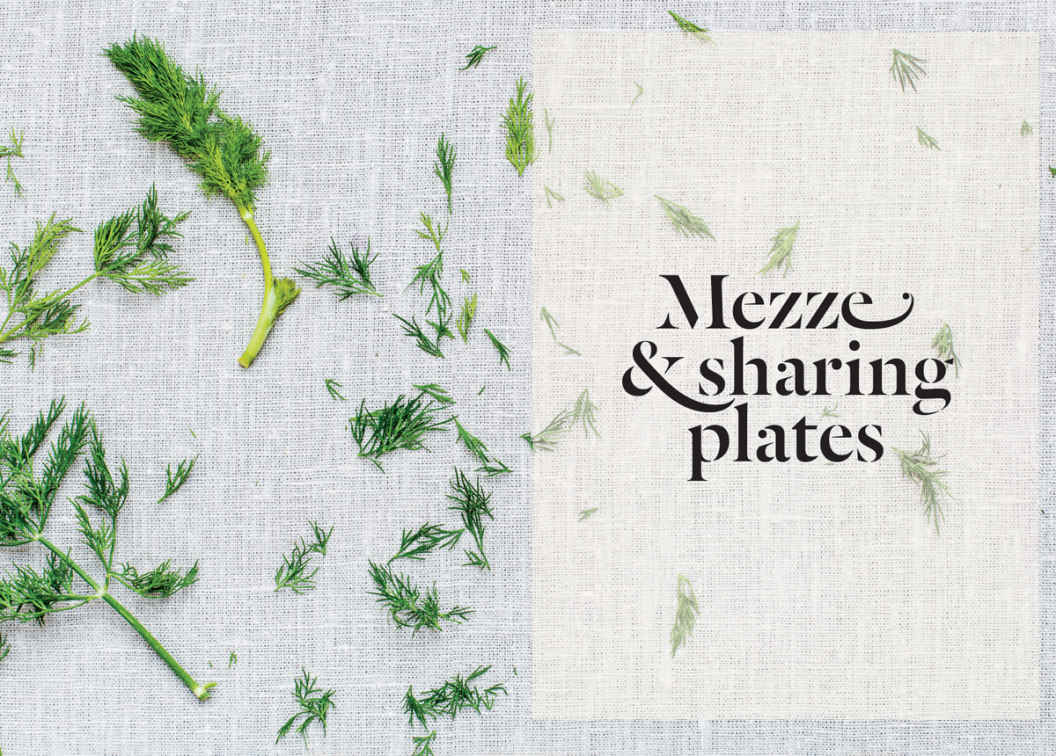
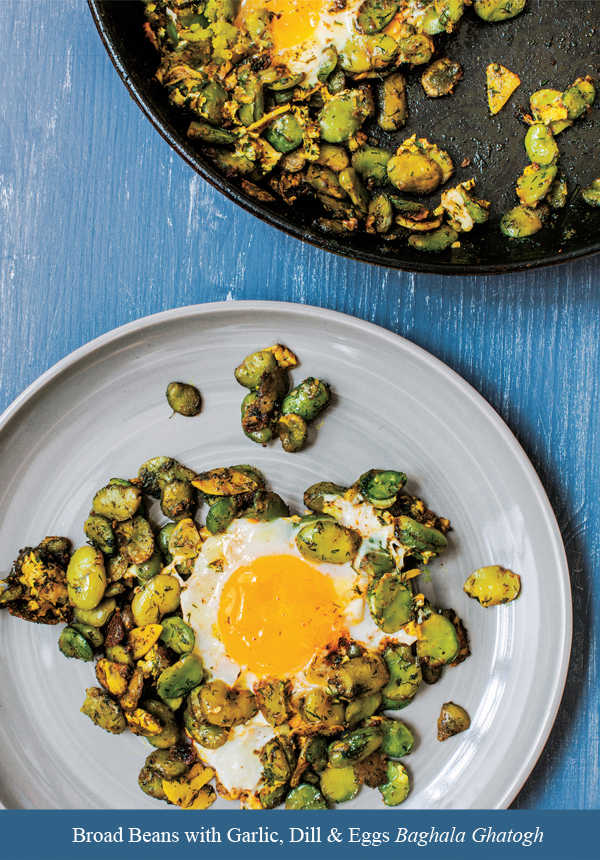
Broad Beans with Garlic, Dill & Eggs Baghala Ghatogh
This dish hails from the northern provinces of Iran. The first time I had this dish as a youngster, it blew my mind. I had never tried anything quite like it; fiercely garlicky and ridiculously tasty, it is not a very mainstream Persian dish, which explains why it was so alien to me at the time. Now when I make it, I sometimes stir the mixture into cooked white rice, as I find this the most satisfying rice dish you could ever want to eat.
SERVES 4 AS PART OF A MEZZE
- olive oil
- 1 garlic bulb, cloves bashed and thinly sliced
- 1kg (2lb 4oz) podded fresh or frozen broad beans, skins removed
- 3 tsp turmeric
- generous tsp crushed sea salt


